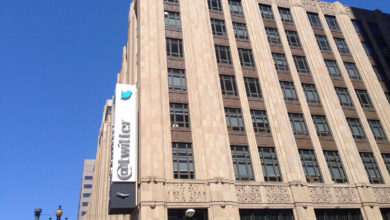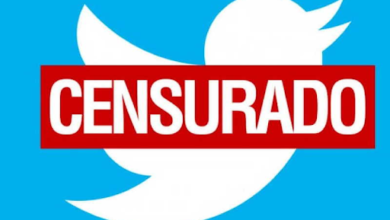In a preliminary injunction delivered on July 4, a Louisiana judge set restrictions on how parts of the U.S. government can attempt to influence the behavior and moderation policies of social media platforms. Among others, the judgment targets the Department of Health and Human Services, Centers for Disease Control and Prevention, FBI, Department of Justice, State Department, Cybersecurity and Infrastructure Security Agency (CISA) and the Department of Homeland Security, as well as individuals in those organizations.
The restrictions prevent those agencies and individuals from coordinating with social media companies to remove or suppress posts “containing protected free speech.” They may not ask for the removal of content, follow up on past requests, or suggest changes to the moderation policies of those companies.
The case, Missouri v. Biden, was filed in May 2022 by the states of Missouri and Louisiana. In initial filings, they allege a regime of online censorship within the Biden administration in conjunction with social media platforms like Twitter, Facebook, YouTube, Instagram and others.
There can be no doubt that the lawsuit and the decision are partisan actions. The Attorneys General of Missouri and Louisiana now and at the time of the initial filing are supporters of former President Donald Trump. Former Missouri Attorney General Eric Schmitt, now a U.S. Senator, won his Senate election with an anti-LGBTQ platform and promoting the idea that the 2020 election was stolen from Trump. Similarly, Louisiana Attorney General Jeff Landry joined on to a 2020 lawsuit asking the Supreme Court to invalidate the electoral votes of Georgia, Michigan, Pennsylvania and Wisconsin – which would have given Trump an electoral college victory in that election. Judge Terry Doughty of the U.S. District Court for the Western District of Louisiana, who wrote the ruling, was appointed by Donald Trump.
Much of the lawsuit also focuses around right-wing talking points, including the anti-China “lab leak” theory that COVID-19 is manmade, opposition to mask mandates and lockdowns, and opposition to mail-in voting.
Government-corporate collusion on social media is real
But progressive people do not have to fall for the far-right propaganda put forward by the lawsuit or the decision to be able to understand the close relationships the U.S. government and social media companies have – and why this is in fact a major problem.
As the Twitter Files revealed earlier this year, the U.S. government regularly works with social media companies to target accounts for suspension or content removal. Just one of the email conversations released between the FBI and Twitter shows the FBI proactively requested a review of 25 accounts, resulting in temporary or permanent suspension of 8 of them, and removal of posts from 8 others.
Investigative reporter Alan MacLeod wrote in a 2022 article for MintPress News that Facebook (now Meta) has a history of hiring former employees of the CIA, Department of Defense, FBI and other agencies into high-level roles for content moderation and policy. This behavior is not affected by the July 4 ruling, but highlights the tight partnership between the government and the platforms.
Under capitalism, companies will implement policies that best help them maximize profit, developing secondary rationalizations of “social good” after the fact in order to justify their decisions. Like the major traditional media outlets, social media companies profited greatly from Donald Trump’s campaign and presidency: engagement on the platforms leads to more data collection and ad views. Though Trump’s bigotry and far-right tendencies were of course well-known before he was even elected in 2016, the platforms made being newsworthy (or in the “public interest” as Twitter termed it) an exception to their moderation policies to keep him on their platforms. These exceptions became unsustainable for the companies after the attack on the Capitol on January 6, 2021, when Trump’s accounts were suspended across major platforms.
At the same time, the platforms have regularly taken moderation action against news outlets, organizations and individuals challenging and questioning the dominant capitalist and imperialist narratives. At the beginning of the Russian invasion of Ukraine in 2022, one company after another jumped to shut down or severely limit accounts tied to Russian news outlets like Sputnik and RT. Even earlier, in 2017, Google News had deranked those outlets in response to the unsubstantiated “Russiagate” claim of Russian interference in the 2016 election, causing results from those sites to show up lower in search results – if at all. Press TV, Venezuela Analysis, Consortium News, MintPress News and many others have faced suspension of services at one point or another for questioning the war machine. In 2020, Twitter shut down 170,000 accounts because they posted content supporting the Chinese government.
Make social media a public utility
Social media platforms have become primary sources for entertainment, news and social interaction for billions across the world. Having these public squares privately controlled by billionaires like Elon Musk, Mark Zuckerberg and Sundar Pichai is anti-democratic. It is no small task to grapple with questions like when misinformation poses too great a threat to public health, or what constitutes incitement to violence. It is an outrage that a handful of corporate executives sitting in boardrooms want to make the decisions all by themselves about what information should and shouldn’t be accessible.
Liberal politicians like Elizabeth Warren call for the breakup of the companies under antitrust regulation, but that does not solve the problem. Breaking up social media companies would keep the ownership in the private arena. Instead, these services should become public utilities, rather than the private possession of rich shareholders.
Turning the social media companies into public property would mean that content moderation policies could be decided democratically. Everyone in society has a stake in the governance of the main mediums we use to communicate and connect. Public control of social media would put these crucial decisions in the hands of the people – not corporate executives, judges or FBI agents.






